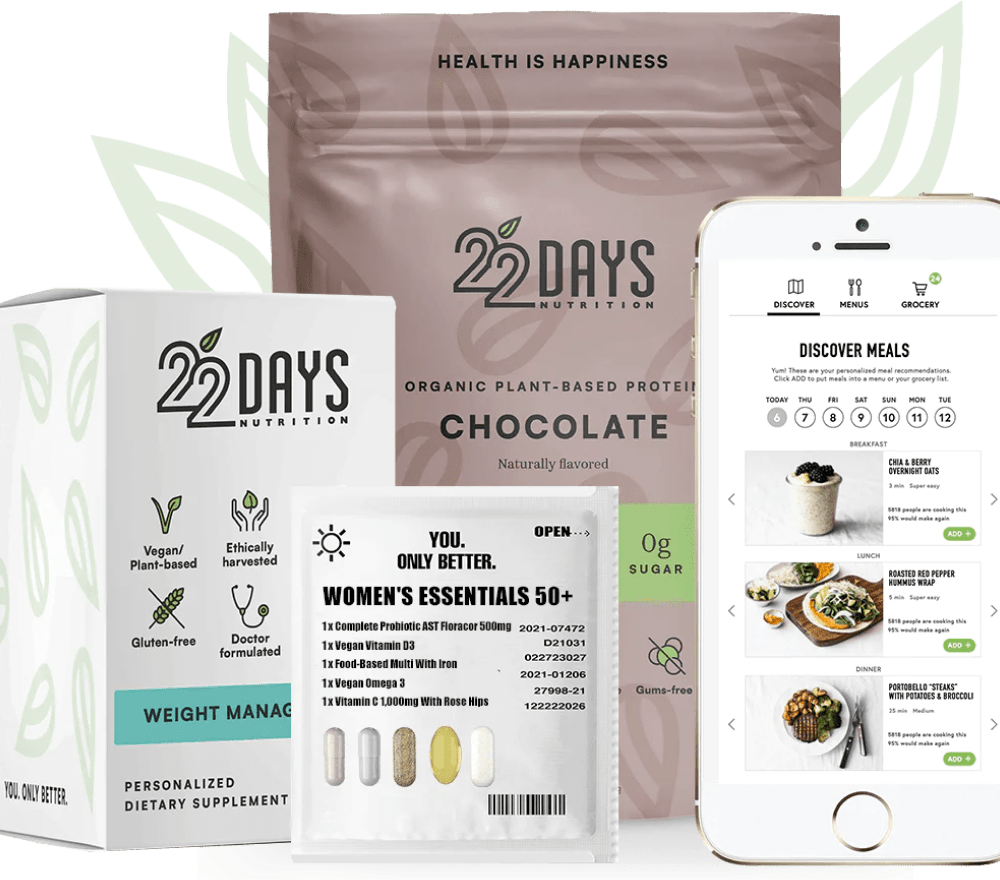Athletes Are Choosing Plant-Based, Should You?
Do you need to eat meat to become a successful athlete? This is a question that has been posed many times, but for a few select world athletes the answer is a resounding “no”. So what are the keys to switching to a plant-based diet while still adequately fueling your body?
Plant-Based Inspiration
Before you think “well, I’m sure many people can be plant-based athletes, but can they really compete?” take a look at this list of just a few elite vegan athletes.
- Olympic Gold Medal Skier Heather Mills
- Damian Stoy, Ultra-distance Runner
- Olympic Gold Medal Sprinter Carl Lewis
- Michael Zigomanis, NHL Player
- Tony Gonzales, NFL Player
- Venus Williams, Champion Tennis Player
- Mac Danzig, MMA Fighter
Many of these athletes have experienced similar results when they convert to a plant-based diet – increased cardiovascular health, improved overall endurance, more energy, reduced recovery time and reduced inflammation in the body. The key, though, is ensuring that your body is consistently receiving the fuel it needs not only to power you through workouts and competitions but also during the recovery phase and on rest days.
Protein’s Not a Problem
This is the one area you’ll always hear when it comes down to whether or not plant-based diets work for athletes. Protein is the building block of muscles, and athletes (regardless of level) need protein to keep their bodies in top condition. Primarily, it comes down to paying attention. Are you getting a balanced amount of the nine essential amino acids throughout the day that your body uses to build and repair muscle? If you can say “yes,” then you are well on your way. If not, it’s time to take a step back and look at your diet. Here are some good plant-based sources of each type of essential amino acid:
- Isoleucine: Watercress, Chard, Sunflower Seeds, Spinach, Kidney Beans
- Leucine: Alfalfa Seeds, Kidney Beans, Watercress, Sunflower Seeds
- Lysine: Watercress, Walnuts, Peas, Lentils, Brewer’s Yeast, Almonds, Chickpeas
- Methionine & Cysteine: Sesame Seeds, Seaweed, Spirulina, Brazil Nuts, Oats
- Phenylalanine & Tyrosine: Sesame Seeds, Kidney Beans, Spinach, Peanuts
- Threonine: Watercress, Spinach, Sesame Seeds, Sunflower Seeds, Kidney Beans
- Tryptophan: Spinach, Turnip Greens, Broccoli Rabe, Asparagus, Oat Bran, Kidney Beans, Watercress
- Valine: Mushrooms, Snow Peas, Kidney Beans, Sunflower Seeds, Sesame Seeds
- Histidine: Apples, Beets, Carrots, Celery, Cucumber, Spinach
As you can see, many of the above-listed foods overlap in two or more categories – so it’s not that difficult to ensure you are getting a good source of complete protein each day. You can also easily add in some complete vegan proteins like quinoa, buckwheat, hempseed and chia.
Keep an Eye on Problem Areas
The problem that many people who are athletes on a plant-based diet run into is not recognizing potential deficits before they become problematic. When you are planning out your plant-based diet, pay special attention to the following:
- Vitamin D
- Vitamin B-12
- Zinc
- Iodine
- Iron
- Riboflavin
- Omega-3 Fatty Acids
The good news is that ensuring that you eat a good range of colorful veggies and incorporate a range of healthy fats into your diet will help take care of any potential deficits. Vegetables, fruits, legumes, nuts and seeds contain an amazing array of vitamins, minerals and fatty acids – we just need to make sure we are eating the right foods. Additionally, you can talk with your doctor about adding a good daily multivitamin if necessary.
Help for Plant-Based Athletes
Luckily, there are many healthy, nutritious options for athletes looking to add additional plant-based protein. A good, plant-based protein powder can certainly help to fill in the gaps and give you a quick option to refuel after workouts. Simply mix with water, or add to your favorite smoothies and baked goods. Our Plant-Protein Powder is 100% organic, Non-GMO, gluten-free and soy-free and contains 16g of protein per serving. If you’re really concerned about maintaining your fitness level while converting to a plant-based diet, consider subscribing to a vegan meal service for a month or more – this will ensure that your body is receiving the fuel it needs to stay in top condition, while help you make the change to meat-free eating. With 22 Days Nutrition Vegan Meal Planner, we deliver 100% plant-based, organic, Non-GMO, gluten-free and soy-free meals to your home weekly so that you have nutritious and satisfying vegan meals ready to eat. And finally, to learn more about a healthy plant-based diet, pick up a copy of Marco Borges's book "The 22 Day Revolution". In the book, not only will you get a primer on a vegan diet, you’ll also get 22 days of meal plans and over 65 delicious recipes!





